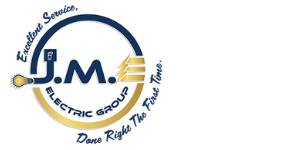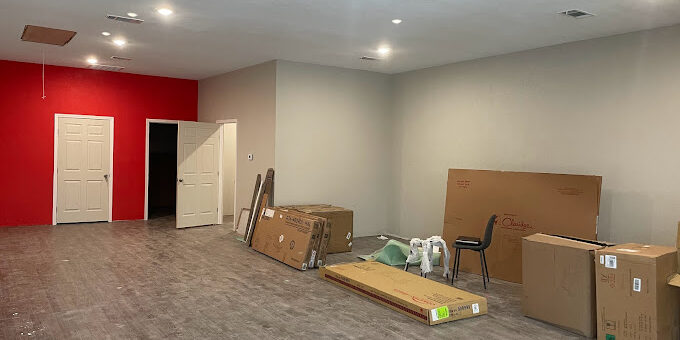As a resident of Wylie, TX or Murphy, TX, ensuring that your home is prepared for unexpected power outages is crucial. With extreme weather conditions becoming more frequent, having a reliable backup power source like a generator can keep your household safe and functional. Generator installation, however, is a significant undertaking that requires careful planning and professional expertise. At JME Electric Group, we understand the importance of making informed decisions, and we’re here to help guide you through this essential process.
Key Takeaway: Installing a generator involves more than just setting up equipment. You’ll need to consider the right generator size, permits, placement, and professional expertise to ensure optimal performance and safety.
Understanding the Basics of Generator Installation
Choosing the Right Generator
Before you even think about scheduling an installation, it’s vital to select the right type of generator for your home. The generator you choose should be based on your power needs. Understanding your home’s energy consumption is crucial, as underestimating the required wattage could lead to an inefficient setup.
- Home Energy Assessment: Before making a decision, conduct a home energy audit to determine the amount of power necessary during an outage. Consider which appliances are critical, such as refrigerators, HVAC systems, and medical devices.
- Generator Types: There are two main types of generators: portable and standby. While portable generators are affordable, they require manual operation. Standby generators, though more expensive, offer automatic power backup and are ideal for homes in Wylie and Murphy prone to frequent outages.
- Sizing Considerations: A generator that’s too small won’t provide sufficient power, while one that’s too large could lead to inefficiencies and higher installation costs. Consulting a qualified electrician can help you make the best choice for your home’s unique needs.
Placement and Installation Requirements
Generator placement is another critical factor. Proper positioning not only ensures efficient operation but also adheres to local safety and building codes. Wylie and Murphy have specific regulations, so familiarity with these is essential.
- Distance from Home: Generators must be installed a certain distance away from the home to prevent the risk of carbon monoxide poisoning. Typically, this means placing the unit at least five feet from any windows, doors, or vents.
- Foundation Preparation: The ground where the generator will sit should be stable and level. Often, a concrete or gravel pad is required to secure the equipment. Our team at JME Electric Group can provide guidance on site preparation to ensure compliance with local codes.
- Permitting and Approvals: Installing a generator may require permits from your local municipality. Working with a licensed electrical contractor ensures that all necessary permits are obtained, and the installation complies with building codes in Wylie and Murphy.
Fuel Sources and Maintenance
Generators run on various fuel types, including natural gas, propane, diesel, or gasoline. Each has its pros and cons, and choosing the right one depends on your budget and the availability of resources in your area.
- Natural Gas vs. Propane: Natural gas generators are connected to your home’s gas line and provide a continuous fuel supply. Propane generators are more versatile but require regular refilling. Diesel is highly efficient but may be less convenient for residential use.
- Fuel Storage and Safety: If you opt for a generator that uses liquid fuel, storage becomes a crucial aspect. Ensure proper storage to prevent safety hazards. For example, gasoline degrades over time, while propane and diesel are more stable.
- Ongoing Maintenance: Regular maintenance is essential to keep your generator in top shape. This includes checking the oil, filters, and electrical connections. A professional electrician should perform annual inspections to ensure everything is functioning correctly.
Factors Influencing Generator Performance
Weather Conditions
Wylie and Murphy’s climate can impact generator performance, especially during extreme weather. Temperature variations can affect how efficiently the generator operates.
- Cold Weather Considerations: In colder temperatures, standby generators may require a warming kit to keep the engine components from freezing. This is especially relevant for homeowners in Murphy who face harsh winters.
- Heat and Ventilation: Generators produce heat and need proper ventilation to prevent overheating. Ensuring adequate airflow and using weatherproof enclosures can prolong the life of your generator.
- Storm Preparations: Preparing for severe weather in advance, such as clearing debris around the unit, can prevent damage and ensure the generator starts when needed.
Impact of Load Management
Proper load management ensures your generator doesn’t become overloaded. Prioritizing essential circuits can help distribute power more efficiently.
- Circuit Prioritization: Work with your electrician to identify which circuits need immediate power during an outage. High-demand appliances like air conditioners may require special attention.
- Automatic Transfer Switches (ATS): An ATS is an essential component of any standby generator system. It automatically transfers the power supply from the grid to your generator during an outage and back again when the utility power is restored.
- Load Testing: Periodic load testing ensures your generator can handle the required electrical load without strain. This proactive step helps identify any potential issues before they become costly problems.
Noise and Environmental Considerations
Generators can be noisy, which may disturb neighbors or violate noise ordinances in residential areas. Understanding these considerations can help you plan appropriately.
- Noise Levels: Generator noise can range from 60 to 100 decibels. Installing sound barriers or enclosures can mitigate noise levels.
- Local Ordinances: Wylie and Murphy may have noise restrictions, especially in residential zones. Ensure your installation complies with these regulations.
- Environmental Impact: Generators can emit pollutants. Choosing a model with lower emissions and ensuring regular maintenance can minimize environmental effects.
Answering Common Questions
What size generator do I need for my home?
The size depends on your power needs. An energy audit can help identify the required wattage for essential appliances. Consulting with an expert ensures proper sizing.
How long does generator installation take?
The timeline varies based on factors like permits and site preparation. Typically, the process takes a few days to a week, including inspections.
Do I need a permit for generator installation?
Yes, most areas, including Wylie and Murphy, require permits. A professional electrical contractor can handle the permitting process for you.
Additional Considerations for Your Generator Installation
Understanding Electrical Panel Upgrades
If your home has an older electrical panel, an upgrade may be necessary to accommodate a new generator. Modern generators require updated infrastructure for safe and efficient operation.
- Compatibility Check: Older panels may not be compatible with newer generators. An electrician can assess your system and recommend any necessary upgrades.
- Smart Panels: Investing in a smart electrical panel can enhance generator performance, offering better load management and remote monitoring capabilities.
- Cost Implications: While upgrading your panel is an added expense, it enhances safety and reliability, especially during long-term outages.
Safety Measures and Emergency Protocols
Having a generator brings peace of mind, but it’s crucial to establish safety protocols. Improper use can pose serious risks, including carbon monoxide poisoning and electrical hazards.
- Carbon Monoxide Safety: Install carbon monoxide detectors near sleeping areas and on each level of your home. Ensure the generator is placed away from vents and open windows.
- Emergency Shut-Off: Familiarize your household with the emergency shut-off mechanism. In case of malfunction, quick action can prevent accidents.
- Professional Installation: Never attempt a DIY generator installation. Hiring certified professionals from JME Electric Group ensures compliance with safety standards.
Planning for Future Needs
Generators are long-term investments, and your power needs may change over time. Planning for future expansions, such as home additions or increased energy consumption, is wise.
- Scalability: Choose a generator model that allows for easy upgrades. Discussing your future plans with an electrician can help you make a cost-effective choice.
- Warranties and Insurance: Consider extended warranties and discuss coverage options with your insurance provider. A generator is a significant asset, and protecting it is essential.
- Remote Monitoring: Some modern generators come with apps that let you monitor performance remotely. This is especially useful for frequent travelers or second-home owners.
Link to Resources
For additional information about electricians, you can visit Wikipedia’s page on electricians. Similarly, understanding the role of electrical contractors can offer insight into the installation process. For general home maintenance, check out the home repair page.
Planning a generator installation may seem overwhelming, but with expert guidance from JME Electric Group, you can ensure your home stays powered safely and efficiently. Feel free to reach out and learn more about our tailored services for Wylie and Murphy residents.








